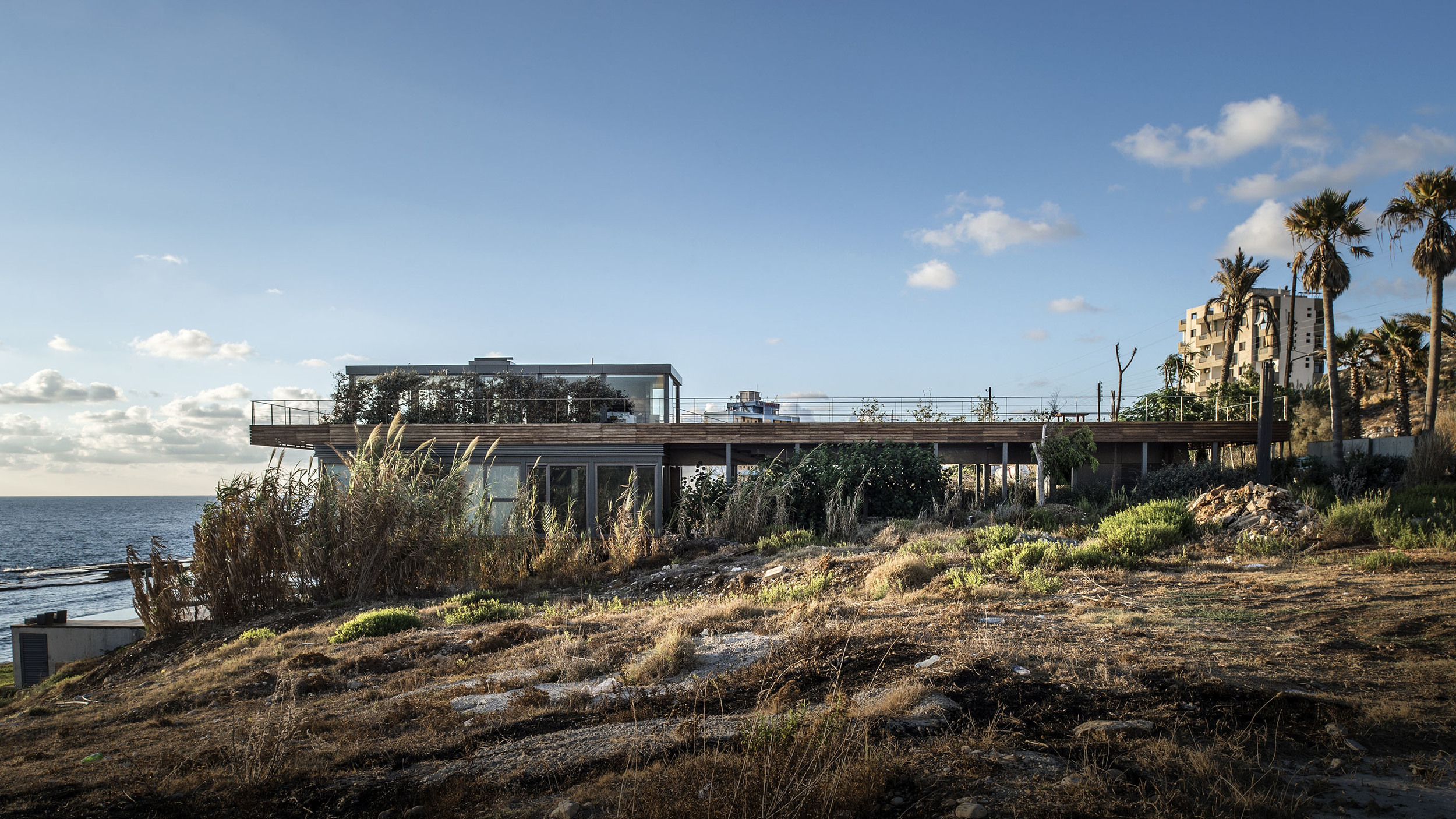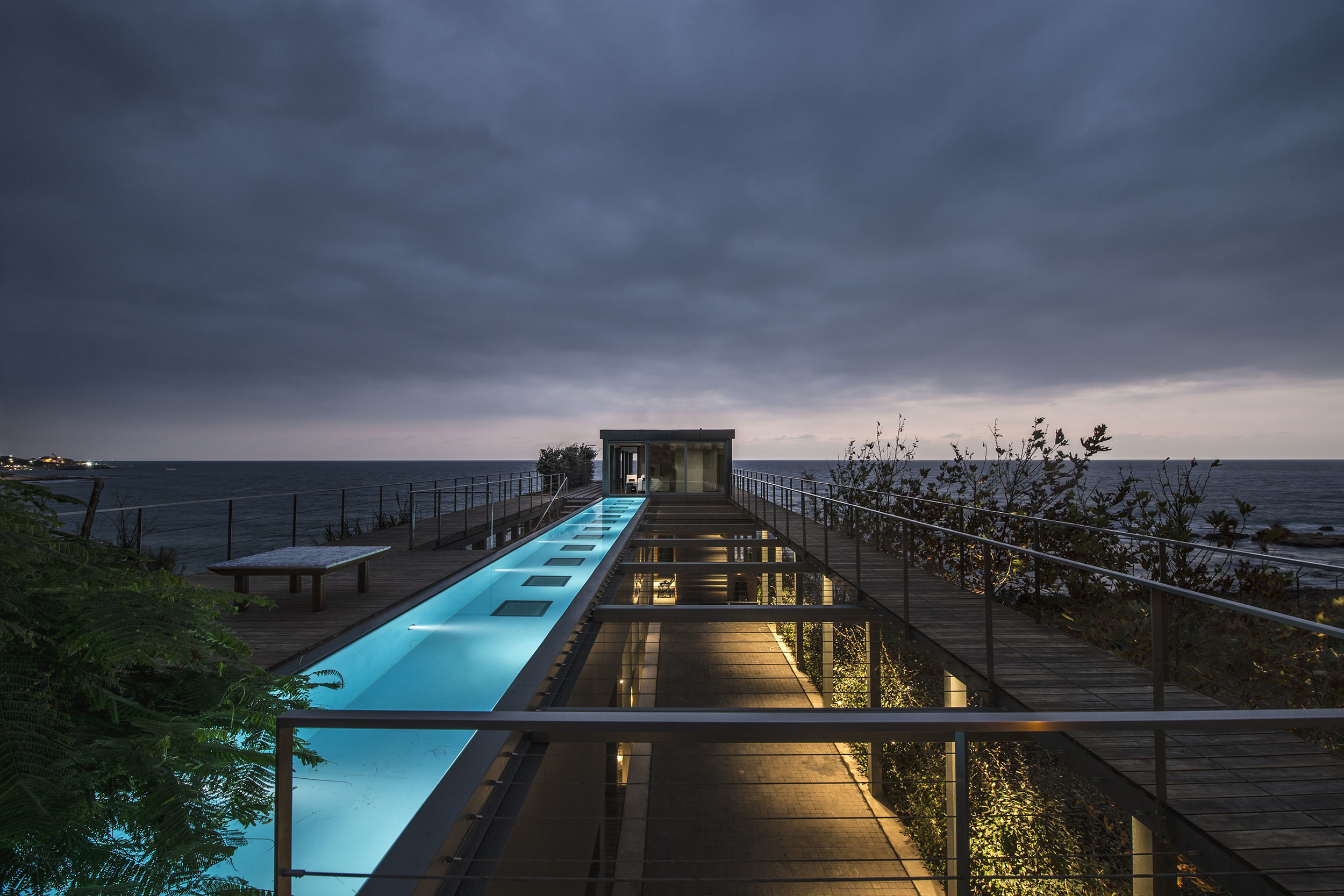Conceived as a layering of decks, the beach house seeks to maximize its relationship with the sea through a visual and compositional celebration of horizontality in general and the mediterranean horizon in particular. The slabs are held by a minimal steel structure made of equally sized square columns on a regular module of 2.55m, as well as a discreet glass enclosure and wooden louvers in varying horizontal and vertical rhythms allowing for a relative level of privacy and shade.
Given the inclined nature of the site, the house is approached by car on the street level just below the upper deck. At the external landing entrance, the circulation interconnects the three levels of the house. The upper platform contains the master bedroom that opens up on an elongated lap pool and expansive sun deck. The middle platform houses two bedrooms and a family living. Finally, the lower deck serves as a reception area that extends outdoors towards the sea through an infinity pool as well as a staircase to the shore. In addition to the inner circulation core, a smooth promenade formed by a system of external ramps and staircases connects the platforms, linking the various levels of the rocky landscape that stretches between the street all the way to the sea.
The rhythms of the steel structure, wooden decking and louver systems create a multiplicity of overlapping patterns of shadows that vary in direction and length all through the day rendering the simple structure at once complex and alive. At the particular moment of the sunset, the house, oriented almost due west at the elevation that faces the sea, acts as photographic diaphragm that invites the rays of the setting sun into the depths of the house, dashing the prototypical spaces in a horizontal glow of deep red.
Project Status: Built.
Designed by Karim Nader and BLANKPAGE Architects
Model by Bassem Saad photographed by Marwan Harmouche
Lighting Design by .PSLab
Photography by Ieva Saudargaitė.
Featured in Archiroots.





























